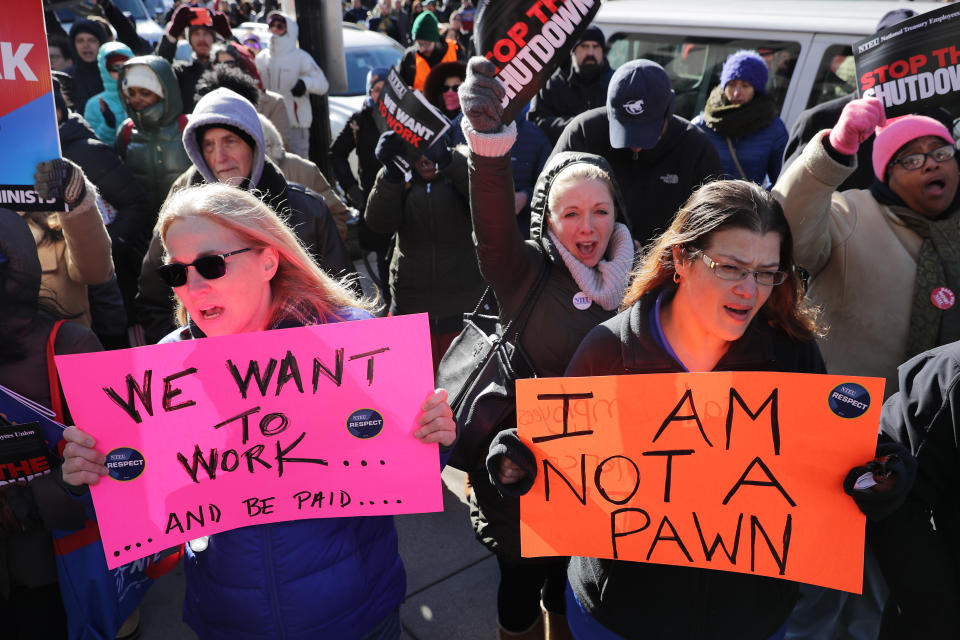Shutdown stories: How the government closure is affecting Americans nationwide
As the partial government shutdown marks its third week, some federal workers and citizens affected told Yahoo News how the impasse is impacting their daily lives.
“I have been through several shutdowns in a 30-year career, but this one is different than the last furlough,” said Freda McDonald, the executive vice president of the union that represents FEMA employees. “This time people are talking about they’re proud to take credit for the shutdown, this means those of us who work for the federal government are stuck in the middle. I’m very concerned — actually I’m borderline terrified — because that means we’re not going back to work.”
Approximately 800,000 federal workers are being affected by the shutdown, with about half of that number furloughed and half forced to work without pay. That reality will hit home on Friday, when some workers will go without paychecks. The current shutdown is the second longest in history, tying the 21-day shutdown that ran from Dec. 16, 1995, to Jan. 6, 1996. President Trump has refused to agree to a stopgap spending deal to keep government open that doesn’t provide billions for construction of a border wall. Congressional Republicans, meanwhile, have declined to join with Democrats to pass a veto-overriding funding bill.
While some national parks have remained open during the shutdown, the diminished staff presence has resulted in vandalism, safety incidents and partial closures.
“There are one-of-a-kind historical and cultural resources here at this park and other parks that our government is failing to protect,” said John Lauretig, a former park ranger at Joshua Tree National Park in California.
Lauretig said the “economic ripple effect” of any park closing would be felt throughout the area, affecting guides who would normally be bringing people into the park and extending to the restaurants that would normally serve visitors. Federal officials were planning on closing the park but made a last-minute decision to keep it open despite damage to some of the namesake trees, Lauretig said.

Both federal employees and the businesses they frequent are trying to adapt to the impasse on funding.
“I live in D.C., and the shutdown does seem to be having an impact on local businesses,” said Timothy Nicholson, an economist with the EPA. “Some restaurants seem to be taking a hit, a lot of them are trying to woo government employees with discounts and shutdown-themed cocktails, which is nice of them to do, but since most of us aren’t getting paid we’re not really able to take advantage, unfortunately.”
With tourism limited since the Smithsonian museums and sights like the National Archive having closed in the wake of the government shutdown, the Washington City Paper reported that D.C.’s taxi, Uber and Lyft drivers have been hard hit. One driver told the paper his daily earnings are down about 75 percent.
The effects of the shutdown are far-reaching: Some residents of government housing may lose their homes and 38 million people on food stamps could be affected if the government doesn’t reopen. Hundreds of TSA screeners at major airports are calling out sick leaving long lines while thousands of FBI agents have said the shutdown threatens national security.
_____
Read more from Yahoo News:


